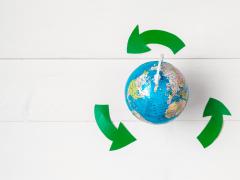Outbound call centres have never had to work harder to remain relevant. Today’s customer has a plethora of tools that allow them to screen and block unsolicited calls. And even when they do pick up, they increasingly expect to have their needs met in the same way they do in other parts of their lives.
Ryan Falkenberg, Co-CEO, CLEVVA, says that it has become increasingly challenging for traditional outbound call centres to generate sales and leads. He believes that technology can help.
Specifically, some of the family of artificial intelligence technologies are called virtual agents. Companies have started using virtual agents to help with lead qualification, targeted offers and proactive servicing using digital channels like WhatsApp, e-mail and SMS.
Why automating outbound sales is so difficult
For many years, human agents have been guided through outbound sales calls by online scripting tools and intelligent knowledge bases. Many still rely on paper-based scripts and call flow diagrams, and while these are helpful, no customer conversation goes the same way. As a result, human agents are forced to rely on their instinct and natural sales skills.
Added to this is the fact that in many industries, outbound calls are strictly regulated. An agent needs to say specific things at specific times. The questions they ask and the answers they give are largely prescribed. Plus, they need a record to prove it.
This makes an easy flowing conversation difficult. You have to hyper-personalise the generic script, making every customer feel that the engagement is being shaped specifically to their needs.
The rise of virtual agents
For many years, we have been unable to do this digitally. Chatbots and pre-recorded voice calls could only offer frustratingly generic customer journeys, with customers feeling like they were being walked through a decision tree of standard options.
Fortunately, this is changing with the emergence of virtual agents. These digital experts are now capable of qualifying leads, making targeted offers and resolving known issues, all in a consistent, compliant and hyper-personalised way.
Customers access these virtual agents via a targeted link sent to them via their WhatsApp, SMS or e-mail. When the virtual agent is opened, it personalises each engagement based on relevant data from internal systems and the customer’s real-time responses.
So, for example, your bank might send you a link immediately after you make a purchase at a jewellery store. This is triggered off a prediction that you are about to get married, given your age and the fact that you purchased a ring. When you open the virtual agent, it immediately confirms the prediction and then asks if you are looking to buy or renovate a home. If you are, the virtual agent can help validate your specific loan needs before advising you on the most appropriate option. It can also ask a human agent to make a follow up call to close the deal in person, if required.
Another example is a telecommunications company using a virtual agent to handle the initial upgrade confirmations. As your contract nears expiry, a link can be automatically sent to your phone. When you open it, your virtual agent can confirm your interest to upgrade. Importantly, it will know the data you have used, the package you were on and the phone you chose. This means the proposed upgrade is totally shaped around your specific needs, making it more likely you will choose it.
Virtual agents aren’t just good at outbound sales. They can be used to proactively address known service issues. So if, for example, a monthly bill is higher than previous months, a link can automatically be sent to the customer to help them work out the reason why. The virtual agents use their specific data usage records to diagnose a possible root cause. This saves the customer calling into the contact centre, and lowers the cost to serve.
A new era for outbound call centres
For outbound call centres, virtual agents offer a powerful, cost-effective way to augment their human agent service. While they handle the upfront lead qualification and initial offer, human agents can focus their efforts on closing. Together, human and virtual agents make a formidable outbound team, and offer customers a far more compelling service.














